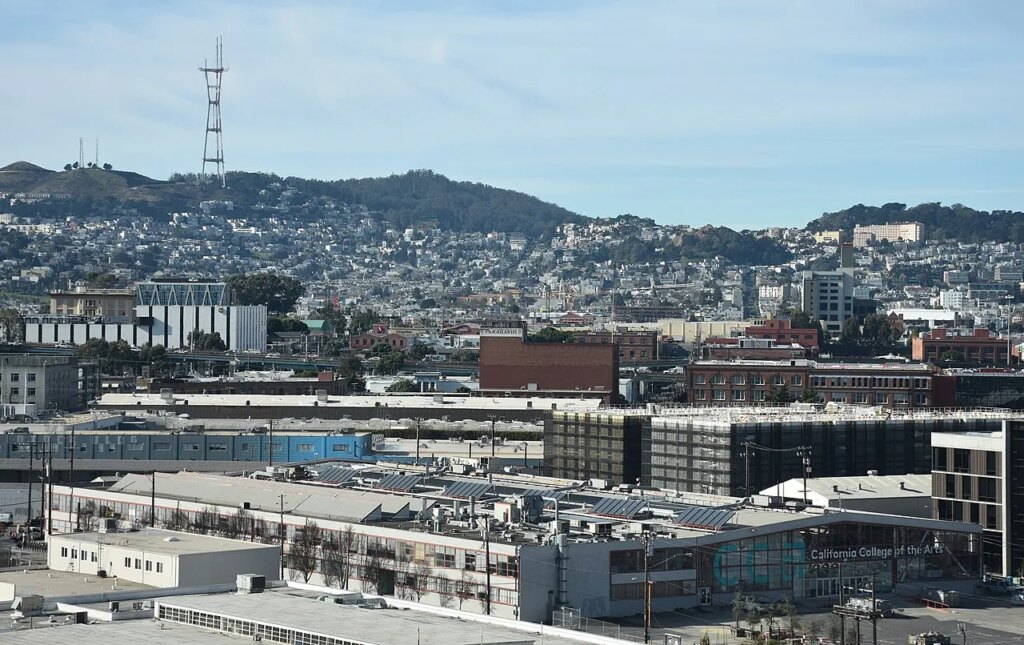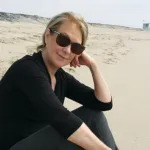
To receive Morning Links in your inbox every weekday, sign up for our Breakfast with ARTnews newsletter.
THE HEADLINES
VACANT HOWSE. The California College of the Arts (CCA) is grappling with a severe financial crisis, facing a $20 million budget deficit amid a sharp decline in student enrollment. The non-profit art institution, known for its programs in San Francisco and Oakland, is now reevaluating its course offerings, contemplating layoffs, and even considering a potential merger with another school to ensure its survival. The news, first reported by the San Francisco Chronicle, broke just before the start of the autumn semester on August 28, which was intended to be marked by the debut of a $97.5 million campus expansion. This ambitious project was meant to consolidate CCA’s San Francisco and Oakland campuses. However, the excitement surrounding the expansion has been overshadowed by financial woes linked to a dwindling student numbers. Enrollment is projected to be down by about 30 percent compared to 2019, when CCA had approximately 1,800 full-time students. The current estimate for this fall is between 1,250 and 1,300, down from 1,400 last year. David Howse, who became CCA’s president in December 2023, addressed the gravity of the situation in a meeting with staff and faculty earlier this month, followed by a memo on August 23. He acknowledged the institution’s financial challenges, indicating that layoffs might be necessary as part of a broader strategy to restructure the school and increase enrollment. A CCA spokesperson confirmed that while layoffs are being discussed, no final decisions have been made, with further planning required as final enrollment figures are expected in September.
CREAM OF THE CROP. The Butter Fine Art Fair returns for its fourth edition this week, highlighting the work of Black artists from across the US. Unique in its economic model, the fair ensures that 100 percent of the proceeds from art sales go directly to the artists. Hosted at the Stutz, a historic former factory in downtown Indianapolis, the event features over 60 exhibitors. Visitors can expect a vibrant mix of talks, musical performances, and spoken-word sets. Co-founder Malina Simone Bacon says that over 3,400 people attended the inaugural event, far exceeding expectations. This year, they anticipate upwards of 12,000 visitors and are nearing the $1 million sales mark. Butter sets itself apart from the international art fair circuit, which often prioritizes exclusivity and high prices. Instead, Butter focuses on equity and elevating historically marginalized voices. The 2024 lineup includes artists like Cornelius Tulloch, whose work is part of the Studio Museum in Harlem’s permanent collection, and April Bey, known for her explorations of Afrofuturism. The fair also celebrates local talent, featuring Indianapolis-based artist D. Del Reverda Jennings, whose work explores diasporic themes through unconventional materials.
THE DIGEST
Read about how a Russian “hippie, LGBTQ artist survived with her inner joy” after being locked up in a “grim” prison. [The Washington Post]
Among the world’s top 20 most-visited museums in 2023, seven are in China: the National Museum of China, China Science and Technology Museum, Nanjing Museum, Suzhou Museum, Hunan Museum, Hubei Provincial Museum, and Guangdong Museum. [Global Times]
It’s after-hour season in Washington D.C., with museums putting on a load of events after closing to the public, from cocktail parties to dance parties. [The Washington Post]
CHART art fair in Copenhagen, which, unusually for an art fair is nonprofit, has kicked off. No booths, free public program, uber hygge. [CHART]
THE KICKER
YELLOW WATERPROOF DUNGAREES! Bad Ischl, a picturesque town in Austria’s alpine Salzkammergut region, has become the first rural alpine destination to be awarded European Capital of Culture (ECOC) status. The town and surrounding area are undergoing a cultural transformation, marked by an influx of contemporary art that contrasts sharply with its traditional image. One of the most talked-about installations is a pastel-pink sculpture by artists Wolfgang Müllegger and Georg Holzmann, placed in a park in Bad Aussee. The artwork, which some locals detest, has sparked debate in a region more accustomed to classical statues and conservative aesthetics. Holzmann, dressed in yellow waterproof dungarees, notes that the sculpture is “just different” from the historical stone statues the townspeople are used to. The ECOC designation has brought hundreds of exhibitions and events to the Salzkammergut region in 2024. These include art installations in unconventional venues, from semi-derelict mansions to quarries. Vienna-based design studio Lucy.D has also contributed by redesigning guesthouse rooms inspired by local crafts. Despite the excitement, the contemporary art influx has faced resistance from some locals who see it as a threat to their traditions. However, many residents feel invigorated by the new cultural buzz. [Guardian]


